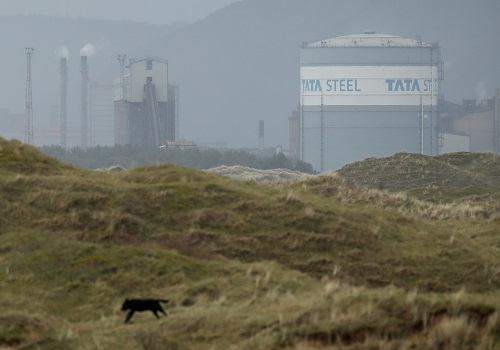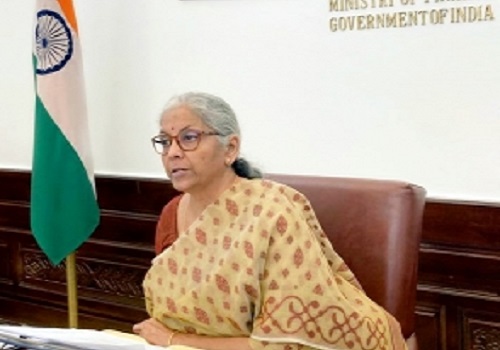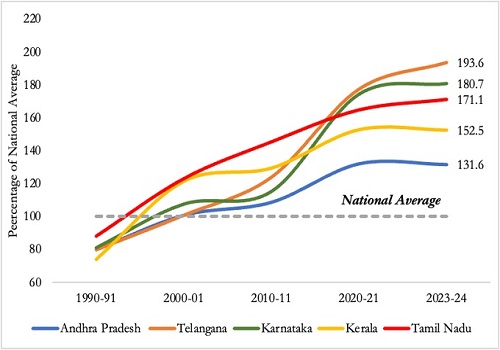Foodgrain production touched a record 315.7 mn tonnes in 2021-22, says Economic Survey

Follow us Now on Telegram ! Get daily 10 - 12 important updates on Business, Finance and Investment. Join our Telegram Channel
India's foodgrain production touched a record 315.7 million tonnes in 2021-22 despite climate change challenges, said the Economic Survey 2022-23 tabled in Parliament by Finance Minister Nirmala Sitharaman on Tuesday.
Further, as per the First Advance Estimates for 2022-23 (Kharif only), total foodgrains production in the country is estimated at 149.9 million tonnes which is higher than the average Kharif foodgrain production of the previous five years (2016-17 to 2020-21). The production of pulses has also been notably higher than the average of 23.8 million tonnes in the last five years, points the Survey.
The Survey described Horticulture as a "high growth area" and "a source of buoyant growth and improved resilience for farmer". According to third advance estimates (2021-22), a record production of 342.3 million tonnes in an area of 28.0 million hectares was achieved. The Government has identified 55 horticulture clusters, of which 12 have been selected for the Cluster Development Programme (CDP) pilot phase. MIDH is designed to leverage the geographical specialisation of horticulture clusters, promote integrated and market-led development of pre-production, production and post-harvest activities across the entire supply chain.
The allied sectors of Indian agriculture - livestock, forestry & logging and fishing & aquaculture are gradually becoming sectors of robust growth and a potential source of better farm incomes.
The livestock sector grew at a CAGR of 7.9 per cent during 2014-15 to 2020-21 (at constant prices), and its contribution to total agriculture GVA (at constant prices) has increased from 24.3 per cent in 2014-15 to 30.1 per cent in 2020-21. Similarly, the annual average growth rate of the fisheries sector has been about 7 per cent since 2016-17 and has a share of about 6.7 per cent in the total agricultural GVA. The dairy sector which employs more than eight crore farmers directly is critical along with products like eggs and meat. India ranks first in milk production in the world, it ranks third in egg production and eighth in meat production in the world, said the Survey.
Cognisant of the importance of the allied sectors, the Government has made multiple interventions to enhance the infrastructure, improve productivity and disease control. Under, Animal Husbandry Infrastructure Development Fund, 116 projects have been approved with a total cost of a,3,731.4 crore. The scheme was launched with a total allocation of a,15,000 crore. While the National Livestock Mission lays emphasis on breed development and entrepreneurship development, the Livestock Health & Disease Control Scheme is being implemented to prevent control and contain animal diseases of economic and zoonotic importance and the National Animal Disease Control Programme is being implemented to control Foot & Mouth Disease and Brucellosis.












 320-x-100_uti_gold.jpg" alt="Advertisement">
320-x-100_uti_gold.jpg" alt="Advertisement">












